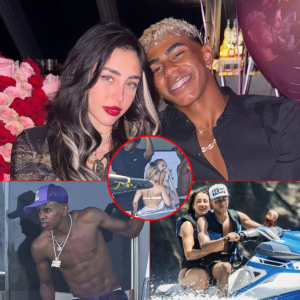
The Dangers of Unverified Rumors in the Age of Instant News
In the modern digital era, news travels faster than ever. A single message posted on social media can spread to millions within minutes. For celebrities and public figures — including rising sports stars like Lamine Yamal — this environment can be both a blessing and a curse. Fame brings attention, but it also makes individuals vulnerable to rumors that can spiral out of control long before the truth is known.
How Unverified Claims Take Shape
Unverified allegations often emerge from anonymous sources, untrustworthy websites, or misleadingly edited content. Once shared, these claims can pick up speed when fans, critics, and gossip pages repeat them without verifying their accuracy. Platforms reward engagement — likes, shares, and comments — not necessarily truth.
A false or exaggerated story may begin with a single tweet, post, or comment, but by the time it reaches a wider audience, it can appear to be a confirmed fact. This phenomenon is common in entertainment and sports, where young stars are under intense public scrutiny.
The Real-World Impact on Public Figures
When rumors involve personal relationships or private matters, the damage can be severe. Even if later proven false, the initial accusation may linger in the public’s memory, shaping how people perceive the individual involved. For a young athlete like Lamine Yamal — still at the beginning of a promising career — such rumors can affect public opinion, sponsorships, and mental health.
This is why responsible reporting matters. Ethical journalists verify sources, confirm facts with multiple parties, and avoid amplifying unproven allegations. Unfortunately, not every online account follows these standards.
How the Media Should Handle Sensitive Claims
In legitimate newsrooms, sensitive allegations go through rigorous checks. Editors demand evidence, lawyers review wording, and reporters confirm stories with credible sources. When such standards aren’t met, inaccurate claims can harm innocent people.
A responsible approach includes:
-
Stating clearly when something is unverified.
-
Contacting the individuals involved for comment.
-
Avoiding sensational or suggestive language.
-
Prioritizing facts over speculation.
Fans and Followers Have a Role Too
It’s not just journalists who shape narratives — fans do too. Every retweet, share, or comment can help a rumor spread further. This means ordinary people also share responsibility for how information moves online. Before reposting a claim, it’s worth asking:
-
Where did this information come from?
-
Is the source credible?
-
Has it been verified by a reputable news organization?
If the answer is no, the best action is to not amplify the claim.
The Importance of Fact-Checking
Fact-checking organizations and credible news outlets work to slow the spread of false information. They compare claims against verified records, speak to experts, and consult primary sources. But in the time it takes to debunk a falsehood, that same falsehood may have already reached millions.
This is why prevention — avoiding sharing unverified allegations in the first place — is often more effective than trying to correct them afterward.
Online Rumors and the Law
In many countries, spreading defamatory statements can have legal consequences. Defamation laws protect individuals from false claims that harm their reputation. Even if a person sharing a post did not create the rumor, they could still be held responsible for amplifying it in some jurisdictions.
For public figures, legal action can be complicated — they are subject to more scrutiny — but they still have rights to protect their reputation. Many celebrities have successfully sued for damages after false allegations spread online.
Protecting Young Public Figures
Rising stars like Lamine Yamal are often teenagers or young adults, still adjusting to the pressures of fame. They may have millions of followers and a global spotlight on them, but they are also human. Mental health professionals warn that exposure to intense online gossip and false claims can lead to anxiety, stress, and even depression.
Respecting personal boundaries and refraining from spreading rumors helps protect not just reputations but also people’s well-being.
What Responsible Journalism Looks Like
Responsible journalism means:
-
Reporting facts, not speculation.
-
Giving individuals a fair chance to respond.
-
Avoiding clickbait language that exaggerates or misleads.
-
Correcting false information promptly and prominently.
When celebrities are involved, it’s especially important to separate public interest from invasion of privacy.
Building a More Trustworthy Information Environment
Every person online plays a part in shaping the digital world. Whether you’re a journalist, a fan, or a casual reader, your actions influence what kinds of stories rise to the top. Choosing accuracy over sensationalism, empathy over judgment, and truth over gossip creates a healthier environment for everyone.
This means pausing before hitting “share,” checking sources, and valuing evidence over entertainment.
Conclusion
The rumor mill is powerful, but truth matters. Unverified allegations about personal lives — like the one involving Lamine Yamal — should not be treated as fact until credible, confirmed reporting emerges. Celebrities, athletes, and public figures are real people with real lives, and their reputations can be damaged by false claims that start as nothing more than whispers online.
By valuing responsible reporting, careful sharing, and respect for privacy, we can reduce the harm caused by digital rumor culture and help ensure that public conversation is based on facts, not fiction.
✅ This article is for informational purposes only and does not claim, suggest, or imply any personal allegations as fact.

